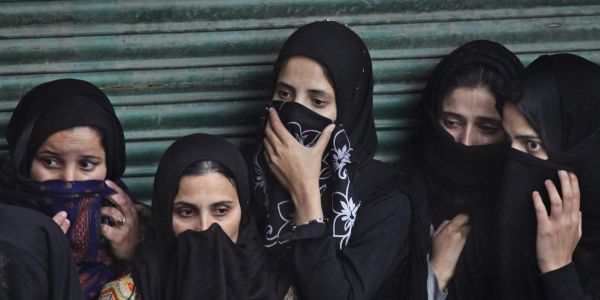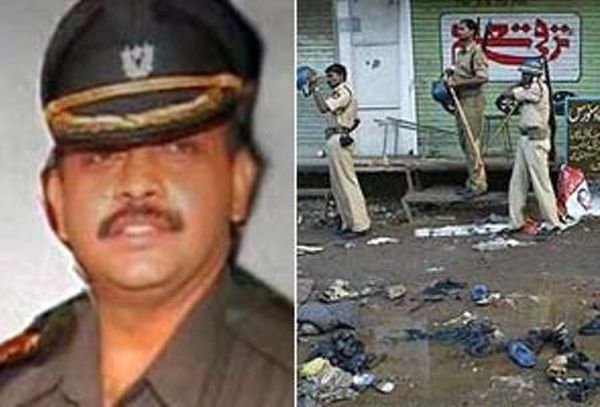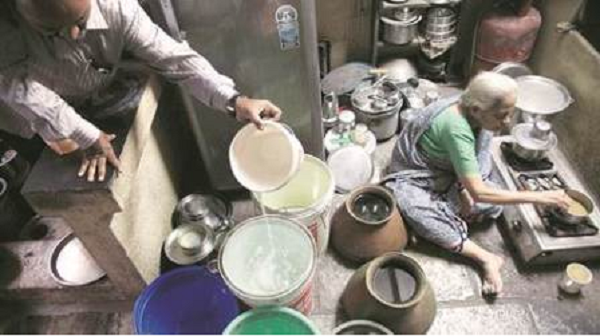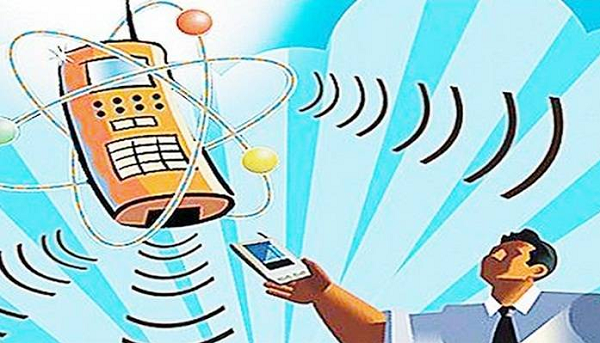
by Editor | May 25, 2021 | News, Politics
 New Delhi : In a landmark judgment, the Supreme Court on Tuesday by a 3-2 decision struck down the centuries-old practice of instant triple talaq among Indian Muslims as unconstitutional, manifestly arbitrary and void in law.
New Delhi : In a landmark judgment, the Supreme Court on Tuesday by a 3-2 decision struck down the centuries-old practice of instant triple talaq among Indian Muslims as unconstitutional, manifestly arbitrary and void in law.
However, the minority judgment concluded that “talaq-e-biddat” was a matter of personal law of Muslims that does not breach the Constitution’s Article 25 (right to practice one’s religion).
Chief Justice J.S. Khehar and Justice S. Abdul Nazeer constituting the minority in the five-bench Constitutional bench ordered an injunction on triple talaq at least for six months — by when the government should consider steps to initiate legislation on the issue.
The other three judges disagreed.
“In view of the different opinions recorded, by a majority of 3:2 the practice of talaq-e-biddat – triple talaq – is set aside,” the bench comprising Justices Khehar, Kurian Joseph, Rohinton F. Nariman, U.U. Lalit and Abdul Nazeer said in the concluding para of the 395-page ruling.
The apex court gave its judgment on a petition filed by Muslim woman Shayara Bano, joined by a Muslim group and four other women.
Justice Nariman and Justice Lalit, who were part of the majority judgment, said: “Given that triple talaq is instant and irrevocable, it is obvious that any attempt at reconciliation between the husband and wife by two arbiters from their families, which is essential to save the marital tie, cannot ever take place.
“…This being the case, it is clear that this form of talaq is manifestly arbitrary in the sense that the marital tie can be broken capriciously and whimsically by a Muslim man without any attempt at reconciliation so as to save it.
“This form of talaq must, therefore, be held to be violative of the fundamental right contained under Article 14 of the Constitution,” they said, adding the 1937 Shariah Act must be struck down.
In a concurring but separate judgment, Justice Joseph said: “What is held to be bad in the Holy Quran cannot be good in Shariat and, in that sense, what is bad in theology is bad in law as well.”
He said he found it extremely difficult to agree with the Chief Justice that triple talaq has to be considered integral to the religious denomination and it was part of their personal law.
He said merely because a practice has continued for long, that by itself cannot make it valid if it has been expressly declared to be impermissible.
He said when issues of such nature come to the forefront, the discourse often takes the form of pitting religion against other constitutional rights.
In his minority judgment, Justice Khehar said it would not be appropriate for the court to record a finding whether talaq-e-biddat was or was not affirmed by Hadiths (Prophet’s sayings) in view of the enormous contradictions in the Hadiths relied upon by rival parties.
“Talaq-e-biddat is integral to the religious denomination of Sunnis belonging to the Hanafi school. The same is a part of their faith, having been followed for more than 1,400 years, and as such, has to be accepted as being constituent of their ‘personal law’.”
“The … practice cannot therefore be set aside … through judicial intervention.”
The minority judgment observed that there was seemingly an overwhelming majority of Muslim women demanding that triple talaq, “which is sinful in theology, be declared as impermissible in law”.
The judges noted that during the hearing, learned counsel appearing for the rival parties described the practice as unpleasant, distasteful and unsavoury. Others called it disgusting, loathsome and obnoxious.
The minority judgment said religion was a matter of faith and not of logic and it was not open to a court to accept an egalitarian approach over a traditional practice.
They said it was not for a court to determine whether religious practices were prudent or progressive or regressive.
The judges said the stance adopted by the Union Government supports the petitioners’ cause and observed: “Unfortunately, the union seeks at our hand, what truly falls in its own.”
—IANS

by Editor | May 25, 2021 | News, Politics
 New Delhi : The Supreme Court is likely to pronounce on Tuesday its verdict on the constitutional validity of triple talaq – a practice already described by All India Muslim Personal Law Board (AIMPLB) as “horrendous”, “sinful” and “undesirable” which had no sanction of Holy Quran and Shariat.
New Delhi : The Supreme Court is likely to pronounce on Tuesday its verdict on the constitutional validity of triple talaq – a practice already described by All India Muslim Personal Law Board (AIMPLB) as “horrendous”, “sinful” and “undesirable” which had no sanction of Holy Quran and Shariat.
The five-judge bench of Chief Justice Jagdish Singh Khehar, Justice Kurian Joseph, Justice Rohinton Fali Nariman, Justice Uday Umesh Lalit and Justice S. Abdul Nazeer will pronounce verdict on the validity of the contentious custom which is in practice for last 1,400 years but illegal in many Islamic countries.
The hearing, spread over five days from May 12 to May 18, was rooted in the apex court’s October 16, 2015 order directing the separate listing of a PIL addressing the question of the rights of Muslim women.
At the outset of the hearing, the court had made it clear that it would not examine the validity of anything that formed an intrinsic part of Islamic religious practices – thereby ousting any submissions on polygamy.
The court had framed three questions to be addressed by all the parties that included whether triple talaq was fundamental to Islam, whether it was sacrosanct to Islam and whether the practice was an enforceable fundamental right.
In the course of the hearing, the AIMPLB issued an advisory to telling the qazis to give an option to Muslim women to opt out of instant triple talaq before giving consent for ‘nikah’.
In their affidavit before the court, they said that qazis all over the country have been instructed that they would while performing nikah, record in the Nikahnama, that the bride has opted out of triple talaq in one sitting.
Senior counsel Salman Khurshid, who was assisting the court in the matter, had said that “What was sinful in theology, can’t be good in law”.
“It (triple talaq) is not only not an essential part of Muslim religion, it is not a part of religion at all. On the contrary it is depreciated by Islam,” he said.
However, the court was not appreciative of the government position that the top court should first pronounce on the constitutional validity of the triple talaq and other forms of talaq, only then it would bring a law.
“We may or may not (decide the issue), but you do,” Chief Justice Khehar had said when the Central government told the court that it should step in a situation where there is no legislation.
While founding its case on gender equality, the government had linked the issue of triple talaq with that of constitutional morality, but the court termed its position a “whitewash”.
As the Centre sought to flag the issue of gender equality of Muslim women vis-a-vis women in other religions and in Islamic countries, the AIMPLB asked it to bring a law taking recourse to Article 25 (2)(b) of the Constitution that permits enactment of law invoking social reforms.
However, AIMPLB had cautioned the constitution bench that “testing the validity of customs and practices was a slippery slope”.
—IANS

by Editor | May 25, 2021 | News, Politics
 New Delhi : The Supreme Court on Monday granted bail to Lt. Col. Prasad Shrikant Purohit (retired), the main accused in the 2008 Malegaon blast which killed seven people.
New Delhi : The Supreme Court on Monday granted bail to Lt. Col. Prasad Shrikant Purohit (retired), the main accused in the 2008 Malegaon blast which killed seven people.
A bench of Justice R.K. Agrawal and Justice Abhay Manohar Sapre granted conditional bail to Purohit asking him not to tamper with evidence.
Purohit had told the apex court that till date charges have not been framed against him while those under the MCOCA (Maharashtra Control of Organised Crime Act) have already been dropped.
He told the court that he has been in jail for the past nine years and was entitled to bail.
Purohit has challenged the April 25 Bombay High Court order which granted bail to another accused, Sadhvi Pragya Singh Thakur, but rejected his plea.
At least seven persons were killed in the explosion in Malegaon in Nashik district on September 29, 2008.
The investigating agencies had earlier allegedly attributed the blast to right-wing group Abhinav Bharat.
—IANS

by Editor | May 25, 2021 | News, Politics
 New Delhi (IANS) The Supreme Court will hear next week a plea seeking stoppage of water supply to the liquor industry in Maharashtra in the wake of acute water scarcity in the state.
New Delhi (IANS) The Supreme Court will hear next week a plea seeking stoppage of water supply to the liquor industry in Maharashtra in the wake of acute water scarcity in the state.
The apex court’s vacation bench headed by Justice Abhay Manohar Sapre agreed to hear the plea next week after an advocate mentioned the matter before the bench and sought an early hearing.
The petitioner told the court that the Aurangabad bench of the Bombay High Court had earlier directed 60 percent cut in the water supply to the liquor industry and 25 percent to other industries in the drought-hit Marathwada region from May 10 till June end.
The petitioners, who are activists, wanted that even this 40 percent supply of water to the liquor industry should be stopped.
The plea assumes significance as the Supreme Court had earlier upheld the Bombay High Court order banning the hosting of IPL matches, including in Mumbai, Pune and Nagpur.

by Editor | May 25, 2021 | Corporate, Corporate Governance
 New Delhi (IANS) The Supreme Court is likely to give on Wednesday its judgment on plea by associations of telecom operators challenging sector regulator TRAI’s October 16, 2015 notification obligating service providers to compensate consumers for dropped calls, at Rs.one each for the first three calls daily.
New Delhi (IANS) The Supreme Court is likely to give on Wednesday its judgment on plea by associations of telecom operators challenging sector regulator TRAI’s October 16, 2015 notification obligating service providers to compensate consumers for dropped calls, at Rs.one each for the first three calls daily.
The verdict by a bench of Justice Kurian Joseph and Justice Rohinton Fali Nariman will be on the petitions by the Cellular Operators Association of India (COAI) and the Association of Unified Service Provider of India (USPAI) who have challenged the Delhi High Court’s February 29 order upholding the Telecom Regulatory Authority of India (TRAI) notification.
The judgment will be pronounced by Justice Nariman.
Telecom service providers (TSPs), in the course of the hearing, had contended that TRAI decision to saddle them with penalty for call drops was a “populist” measure to accommodate telecom consumers as these were happening for host of external consideration not attributable to them.
The associations had contended that under the terms and conditions of licence, it was only when call drops exceed a 2 percent ceiling that operators attract penalties, and none of the telecom service providers have breached the cap or penalised on this count.
However, TRAI had defended its decision to impose call drop penalty on the telecom service providers describing it as a “least invasive way to deal with the issue” and told the apex court that the service providers must enhance their investment in infrastructure as they were earning huge revenues.

 New Delhi : In a landmark judgment, the Supreme Court on Tuesday by a 3-2 decision struck down the centuries-old practice of instant triple talaq among Indian Muslims as unconstitutional, manifestly arbitrary and void in law.
New Delhi : In a landmark judgment, the Supreme Court on Tuesday by a 3-2 decision struck down the centuries-old practice of instant triple talaq among Indian Muslims as unconstitutional, manifestly arbitrary and void in law.



